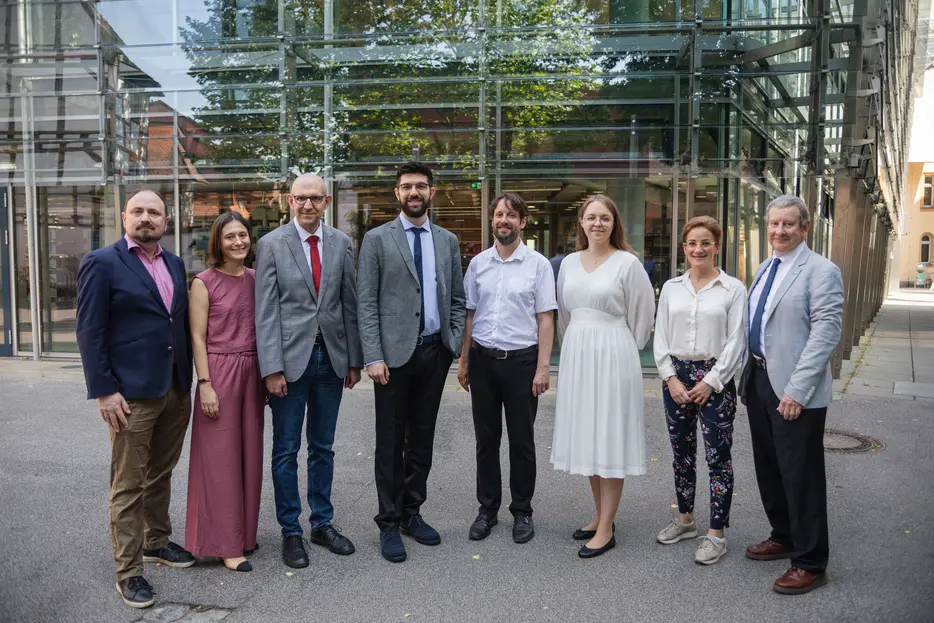
The Team in July 2024
The Project
The genre of late antique law texts, “constitutions”, appears puzzling to the modern observer: contrary to our expectations of clarity and brevity, they are astoundingly voluminous, hiding away the actual legal core—which can be quite short—in a lengthy and elaborate text. They are composed in an accomplished style, and we actually know that their authorship was entrusted to some of the best contemporary literati. Thanks to a sophisticated system of transmission, these texts would reach each and every town in the area of their intended diffusion. Eagerly attended public readings as well as postings at well-frequented places (sometimes permanently as inscriptions) ensured that vast portions of the population would come to know their contents.
These texts’ importance in Late Antiquity contrasts starkly with the current state of research. Nobody has investigated the full imperial constitutions as prime examples of late antique Kunstprosa, nor has much effort been put into appreciating the various subjects raised in their complex introductions. Their communicative role, spanning huge geographic as well as social distances from the very center of power to the remotest corners of the vast empire, has been tentatively interpreted by some scholars as “propaganda”, a simplistic explanation which fails to convince. Clearly, these extraordinary texts are in dire need of reassessment.
This project has a twofold purpose: first, on the basis of the evidence from the full constitutions, it will yield the methodically most sophisticated study of top-down communication in Late Antiquity, embracing important conclusions and methods of modern communication theory. Second, in order to obtain reliable results, the full constitutions must be collected, sorted, verified, emended, and published anew. Both the resulting collection itself as well as the completely novel methodology employed to ensure its soundness will have a major impact on other research in Classics, Law, and beyond.